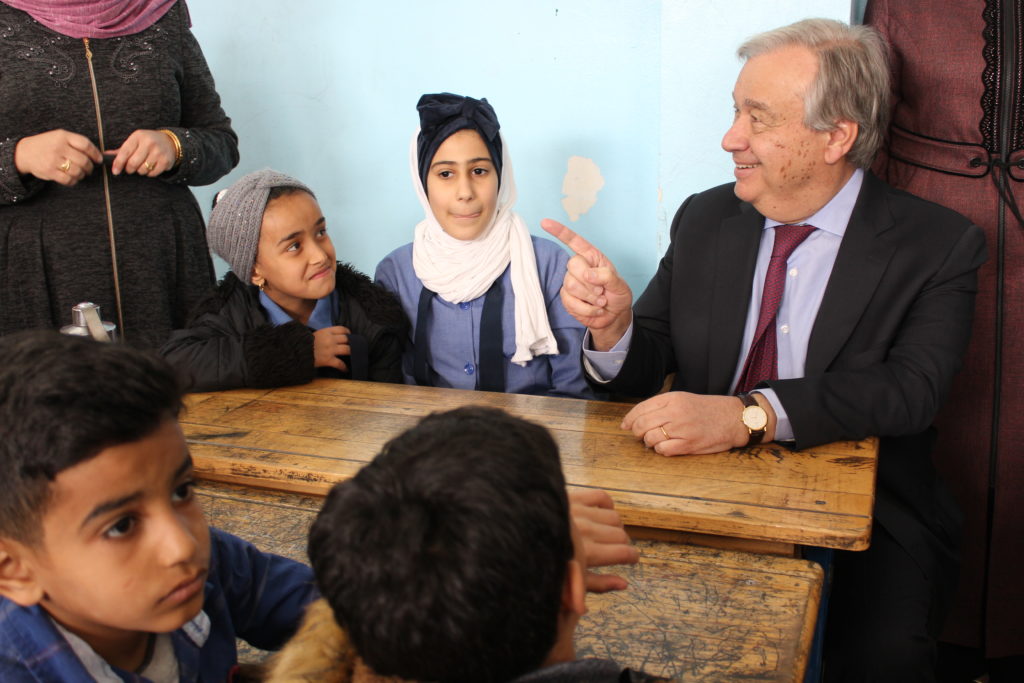FRESH AIR
Australia halves UNRWA funding
October 9, 2020 | Naomi Levin

The Australian Government has quietly halved its contribution to the United Nations Relief and Works Agency for Palestine Refugees (UNRWA).
The cut to UNRWA funding was not formally announced by the Morrison Government, but was listed in the 2020-21 Department of Foreign Affairs and Trade budget papers. In 2020-21, Australia will contribute $10 million to UNRWA, down from $20 million in 2019-20.
It is important to note that despite budgetary pressures due to COVID-19, the Australian Government has not made significant reductions to its contributions to other global humanitarian organisations, including UN agencies.
Support for the UN High Commission for Refugees (UNHCR) has remained the same, support for the World Health Organisation and UN Children’s Fund is constant, but there was a drop in support for the World Food Programme. UNRWA is the only organisation of its type whose funding was halved by the Australian Government in this Budget.
This decision marks the end of a period when Australia, beginning under then-foreign minister Bob Carr, became one of UNRWA’s most significant funders. In 2012. Carr announced a five-year $90 million funding deal for UNRWA. This was topped up with an additional $4.5 million in 2013. By 2017, Australia was UNRWA’s 12th largest donor.
The Coalition Government extended UNRWA funding, contributing, on average, $20 million a year until 2019-20.
However, there have been calls for the Australian Government, including from the Australia/Israel & Jewish Affairs Council (AIJAC) to carefully consider whether supporting UNRWA is truly in Australia’s national interest or whether Australia should be making its funding contingent on reforms to UNRWA. It should be noted that the United States withdrew its funding of UNRWA in 2018 due to concerns over its effectiveness and neutrality.
The Australian Government – and the Labor Opposition – maintains a commitment to a two-state peace where Israel and a future Palestinian state co-exist peacefully. Unfortunately, UNRWA’s policies and activities do not contribute towards this goal.
First, UNRWA’s definition of refugees is out of sync with the UN’s global refugee agency, the UNHCR. This contributes to the challenges faced by Palestinians. UNRWA counts 5.5 million Palestinian refugees, including 2.2 million Jordanian citizens, 2.1 millions Palestinians living in the Palestinian Territories, and hundred of thousands of people who are registered as refugees in Syria and Lebanon but have emigrated, many to the West. UNRWA also does not seek to resettle refugees in its remit, in stark contract to the UNHCR, and discourages Palestinians from leaving UNRWA refugee camps.
In a second, and related problem, UNRWA supports the “right of return” of all 5.5 million so-called Palestinian refugees to the land recognised by the international community as Israel. This claim is incorrectly predicated on the misinterpreted UN General Assembly Resolution 194, which does not provide for the return of refugees and their descendants. In addition, if such a “right” were to be exercised, and 5.5 million Palestinians were resettled in Israel, Israel’s would lose its Jewish majority and cease to exist as the world’s only Jewish state.
Third, there have been countless examples of a lack of neutrality at UNRWA. Textbooks used in UNRWA schools incite violence against Israelis and glorify jihad; some UNRWA staff have been found to have affiliations with Hamas, which is sworn to Israel’s destruction; and in 2014 the UN investigated the discovery of weapons caches at UNRWA schools.
Fourth, UNRWA has been forced to review its operations after a high-level external investigation into the actions of its previous director Pierre Krahenbuhl, and significant concerns about poor management and money wastage. In July, recently appointed UNRWA Commissioner General Philippe Lazzarini told UNRWA’s Advisory Commission, of which Australia is a member that, “2019 has been a challenging year for UNRWA. The Agency paid a high price. Its reputation was harmed. Its top leadership decapitated. And funding hit a record low since 2012.
“Despite this, the Agency, building on the strength and commitment of its staff, kept all services running. Today, we have gone a long way towards rolling out the management initiatives, to strengthen transparency, accountability, oversight and governance.”
The halving of Australia’s funding for UNRWA is a significant move that reverses close to a decade of record contributions.
RELATED ARTICLES

‘Time’s up for talk’: Joel Burnie discusses Antisemitism Envoy’s report on Sky News

‘Optimism’ for Hamas to ‘exile’ their power and create a permanent ceasefire with Israel: Joel Burnie on Sky News

Australian government’s response to Iran-Israel conflict ‘disappointing’: Paul Rubenstein on Sky News




















